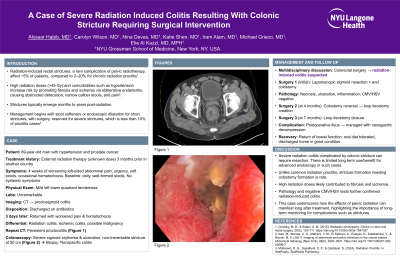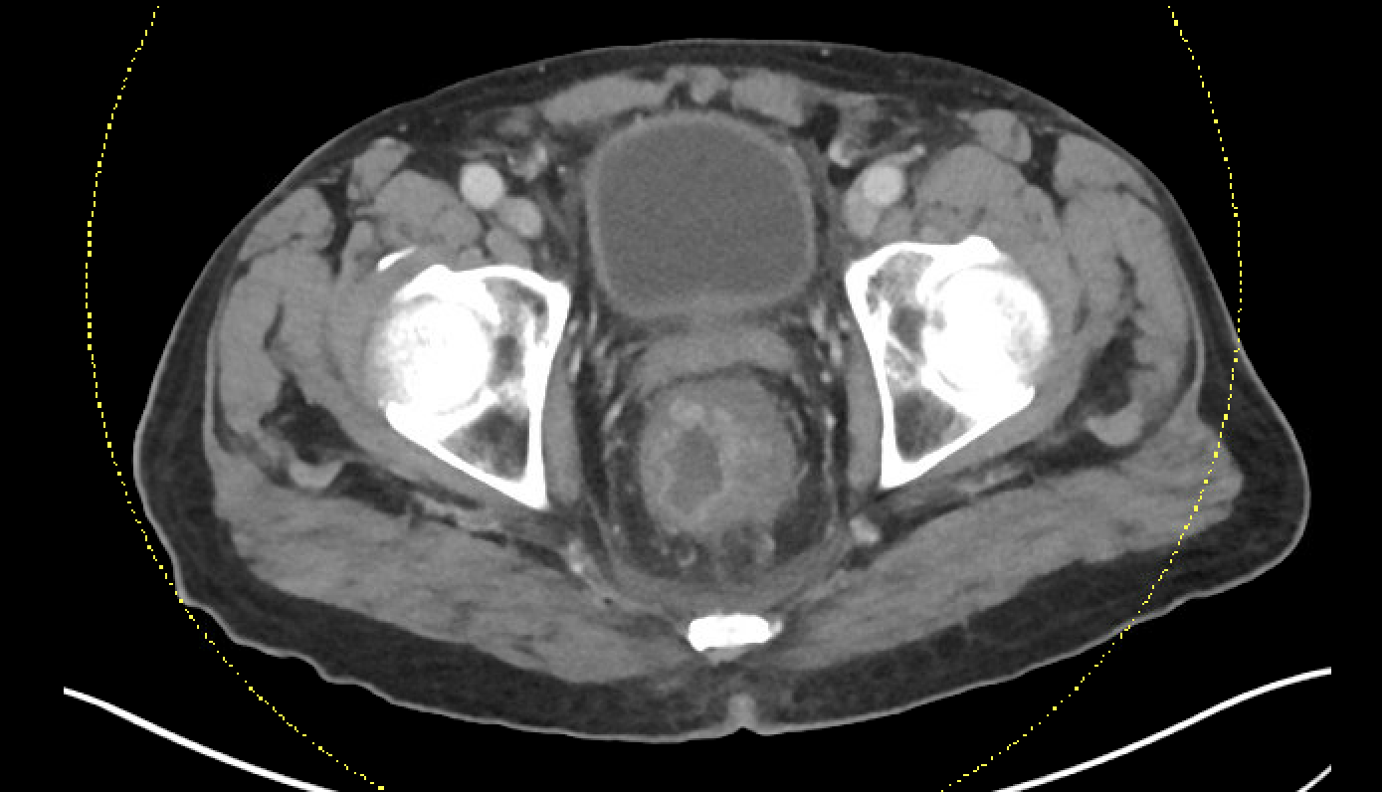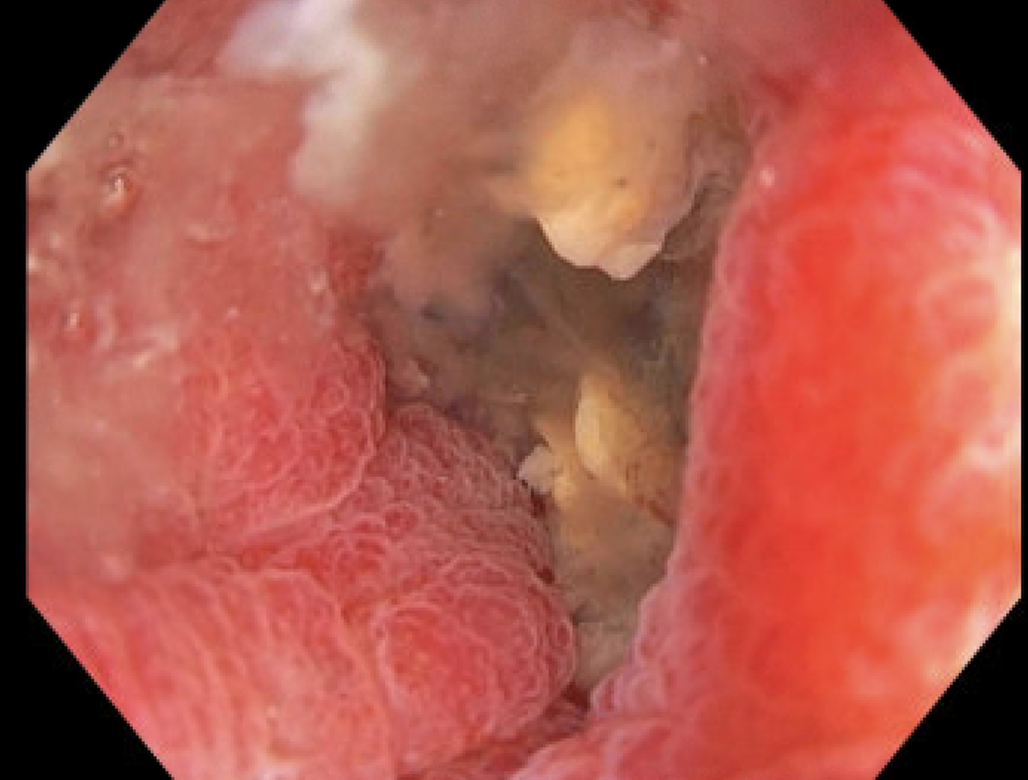Monday Poster Session
Category: Colon
P2494 - A Case of Severe Radiation Induced Colitis Resulting With Colonic Stricture Requiring Surgical Intervention

- AH
Alyssar Habib, MD
NYU Grossman School of Medicine
New York, NY
Presenting Author(s)
1NYU Grossman School of Medicine, New York, NY; 2NYU Langone Health, New York, NY; 3New York University Langone Health, New York City, NY
Introduction:
Radiation-induced rectal strictures, a rare complication of pelvic radiotherapy, affect ~5% of patients, compared to 2–20% for chronic radiation proctitis. High doses ( >45 Gy) and comorbidities like hypertension increase risk by promoting fibrosis and ischemia via obliterative endarteritis, leading to obstructed defecation, narrow stools, and pain. Strictures typically appear months to years post-radiation. Management starts with stool softeners or endoscopic dilatation for short strictures while surgery is reserved for severe cases (under 10% of proctitis).
Case Description/Methods:
A 69-year-old man with hypertension and prostate cancer, treated with an unknown dose of external radiation therapy 3 months earlier in another country, presented with four weeks of worsening left-sided abdominal pain, urgency, soft stools, and occasional hematochezia. His baseline was daily, well-formed stools. He denied systemic symptoms. Exam showed mild left lower quadrant tenderness; labs were unremarkable. CT revealed proctosigmoid colitis, and he was discharged on antibiotics. Three days later, he returned with worsened pain and hematochezia. Differential included radiation colitis, ischemic colitis, and malignancy. Repeat CT confirmed persistent proctocolitis (Figure 1). Colonoscopy showed severe sigmoid erythema, ulceration, and a non-traversable stricture at 50 cm (Figure 2). Biopsies confirmed nonspecific colitis. After discussion with colorectal surgery, the presentation was considered most consistent with radiation-induced colitis. He underwent laparoscopic sigmoid resection with end colostomy. Pathology revealed necrosis, ulceration, and inflammation, with negative CMV/HSV. His symptoms improved. Four months later, he had colostomy reversal with loop ileostomy. Three months later, he underwent loop ileostomy closure, complicated by postoperative ileus managed with nasogastric decompression. He eventually had return of bowel function, tolerated oral diet, and was discharged home in good condition.
Discussion: This case illustrates severe radiation colitis complicated by colonic stricture requiring resection. Unlike common radiation proctitis, stricture formation requiring colostomy is rare. High radiation doses likely contributed to fibrosis and ischemia. Pathology and negative CMV/HSV tests further confirmed radiation-induced colitis. This case underscores how pelvic radiation effects can manifest post-treatment, highlighting the importance of long-term monitoring for complications like strictures.


Disclosures:
Alyssar Habib, MD1, Carolyn Wilson, MD2, Nina Devas, MD1, Katie Shen, MD3, Iram Alam, MD2, Michael Grieco, MD2, Elie Al Kazzi, MD, MPH1. P2494 - A Case of Severe Radiation Induced Colitis Resulting With Colonic Stricture Requiring Surgical Intervention, ACG 2025 Annual Scientific Meeting Abstracts. Phoenix, AZ: American College of Gastroenterology.
